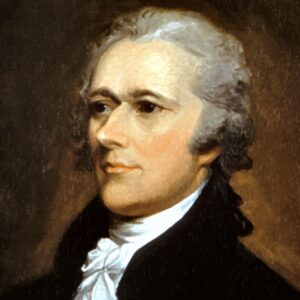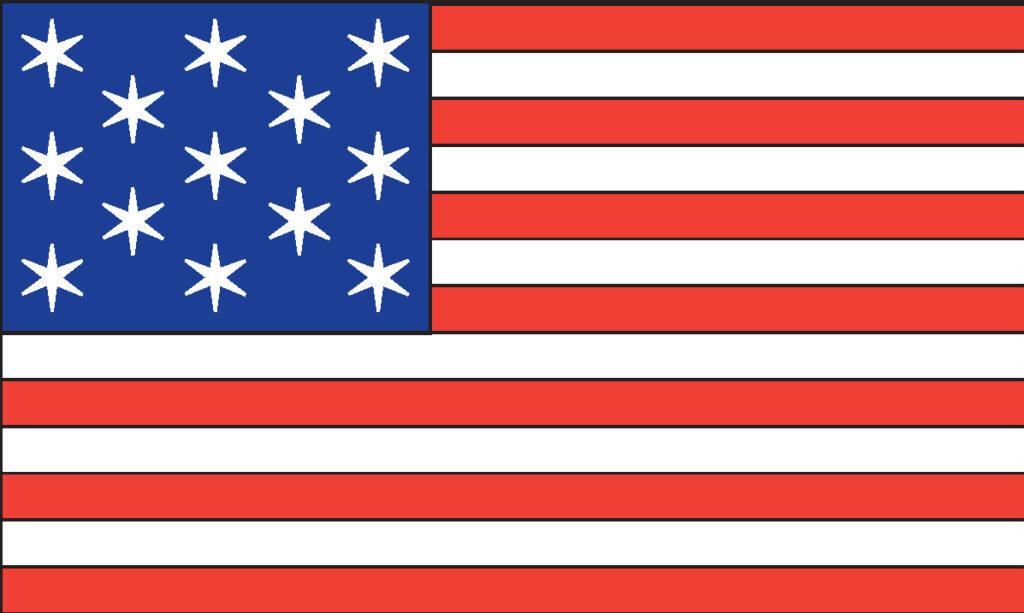Alexander Hamilton, a former Delegate, from New York, to the Constitutional Convention, using the penname “Publius,” publishes “Federalist #36,” urging that the federal government received the bulk of its revenue from indirect taxes (“taxes exacted indirectly from a person other than the one on whom the ultimate burden of the tax is expected to fall.” [Such as tariffs on imports, or excises] –– Webster’s Unabridged Dictionary Unabridged Dictionary), and rely upon direct taxes (“taxes exacted directly from the person on whom the ultimate burden of the tax is expected to fall, such as property, income, gift, inheritance, and poll taxes.” –– Webster’s Unabridged Dictionary) only as a last resort. In paragraphs 2, 6, 7, 8, 9, 11 and 13 he writes,
… [U]nless the representative body were to be far more numerous than would be consistent with any idea of regularity or wisdom in its deliberations, it is impossible that what seems to be the spirit of the objection we have been considering should ever be realized in practice. …
· · · · · · ·
The taxes intended to be comprised under the general denomination of internal taxes may be subdivided into those of the DIRECT and those of the INDIRECT kind. … The principal thing to be attended to, would be to avoid those articles which had been previously appropriated to the use of a particular State. …
… Land taxes are commonly laid in one of two modes, either by ACTUAL valuations, permanent or periodical, or by OCCASIONAL assessments, at the discretion, or according to the best judgment, of certain officers whose duty it is to make them. …
But there is a simple point of view in which this matter may be placed that must be altogether satisfactory. The national legislature can make use of the SYSTEM OF EACH STATE WITHIN THAT STATE. The method of laying and collecting this species of taxes in each State can, in all its parts, be adopted and employed by the federal government.
Let it be recollected that the proportion of these taxes is not to be left to the discretion of the national legislature, but is to be determined by the numbers of each State, as described in the second section of the first article. An actual census or enumeration of the people must furnish the rule, a circumstance which effectually shuts the door to partiality or oppression. … In addition to the precaution just mentioned, there is a provision that “all duties, imposts, and excises shall be UNIFORM throughout the United States.’
· · · · · · ·
… A small land tax will answer the purpose of the States, and will be their most simple and most fit resource.
· · · · · · ·
As to the first point, there are two cases in which there can be no room for double sets of officers: one, where the right of imposing the tax is exclusively vested in the Union, which applies to the duties on imports; the other, where the object has not fallen under any State regulation or provision, which may be applicable to a variety of objects. In other cases, the probability is that the United States will either wholly abstain from the objects preoccupied for local purposes, or will make use of the State officers and State regulations for collecting the additional imposition. This will best answer the views of revenue, because it will save expense in the collection, and will best avoid any occasion of disgust to the State governments and to the people. ….
· · · · · · ·
As to poll taxes, I, without scruple, confess my disapprobation of them. … The real scarcity of objects in this country, which may be considered as productive sources of revenue, is a reason peculiar to itself, for not abridging the discretion of the national councils in this respect. There may exist certain critical and tempestuous conjunctures of the State, in which a poll tax may become an inestimable resource. … [emphasis in the original]
[restored 12/7/2024]
Subsequent Events:
Authority:
Articles of Confederation, Article XIII
ccc-2point0.com/Articles-of-Confederation
References:
Federalist No 36 – The Avalon Project
avalon.law.yale.edu/18th_century/fed36.asp
Federalist No. 36 – Wikipedia
en.wikipedia.org/wiki/Federalist_No._36


